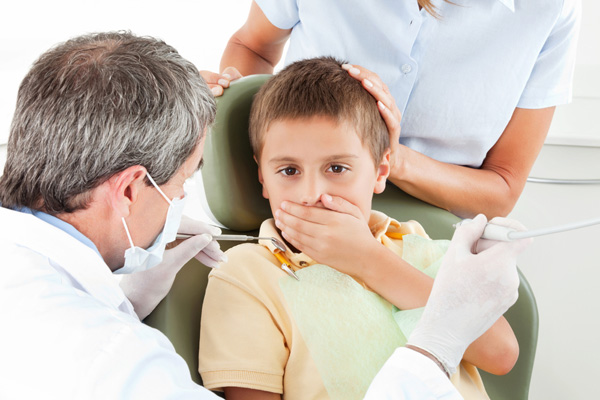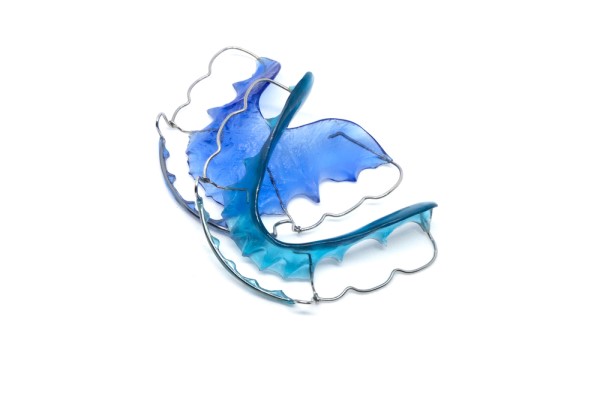What To Do If You Lose Your Invisalign Chatsworth, CA
Taking the Invisalign® journey is just the first step to a straighter, brighter smile, but maintaining and protecting your aligners is essential for completing the process. Losing, breaking, cracking, or wearing down aligners is quite common. If your Invisalign aligners are currently lost or broken, the first and most important step is to contact us and reorder the trays.
Replacement Invisalign aligners are available at Smile By Dr. K in Chatsworth and the surrounding area. Our staff can help you replace your aligners and get you back on track. Call us at (818) 341-5150 to schedule a revisitation.
Proactive Steps to Take When First Losing Aligners
Do Not Panic
Since Invisalign aligners are removable, they can easily be lost, forgotten, or misplaced. It is vital to be proactive when searching as panic often leads to overconsumption of time and less effective outcomes.Replay the Day
Tracking movements and replaying the day can help guide the search process. Start in the morning, assuming the aligners were worn overnight, and work your way through the day. Were the aligners removed during breakfast? Were they placed on the counter while brushing teeth? Be sure to diligently scan widely-used areas such as the home, car, and workplace.Finalize
Patients should not spend too much time searching and prolong seeking professional care, which can lengthen the treatment time. If the aligners are not visible in any frequented areas, it is safe to assume that they are missing. The next step is to contact us, order replacement trays, and request immediate steps to take during the waiting process.“Do not spend too much time looking for the aligners as this may prolong the treatment even further.”
Wearing the Previous Aligners vs. Moving to Next Pair
Once replacement aligners are requested, our team will review the situation and current state of the patient’s progression and instruct them to either wear the previous aligners or advance to the next trays in their set. It is crucial that the patient continuously wear aligners to prevent teeth from regressing, whether that results in back-tracking or fast-tracking their treatment. Replacement aligners can delay treatment time by one or two weeks, but wearing aligners, even a previous set, helps keep teeth confined and reduces overall delay. Therefore, those who wear a previous or consequent aligner during the waiting period experience decreased discomfort and easier transition when wearing their new pair.“It is crucial that the patient continuously wear aligners to prevent teeth from regressing, whether that results in back-tracking or fast-tracking their treatment.”
Going Without Aligners
Patients who have undergone the first stage(s) in their treatment plan have initiated the movement of the teeth, which causes both tension and pressure to the teeth, gums, and mouth. Removing the aligners releases the tension and pressure provided to allow movement and positioning. The PubMed journal of natural science, biology, and medicine reports that “relapse is an unwanted change… changes take place shortly after the removal of the active appliances, during the period of post-treatment ‘settling,’ or over a period of years.” Even removing the aligners for a few hours per day can cause the teeth to relapse. Treatment plans are curated based on predicted teeth movement over time, as well as anticipated patient cooperation. According to the Read Journal of the Canadian Dental Association, “Adherence to a prescribed treatment modality is of utmost importance in ensuring successful therapy. Lack of adherence can reduce the effectiveness of the best treatment plan and the most promising treatment mechanisms.” Since aligners are self-applicable, orthodontists may be unaware of their patients’ actual wear time, making it difficult to monitor progress. Although common, misplacing aligners may cause slight back-tracking when continuing with previous aligners or waiting on replacements. A one-time loss should not cause any detrimental effects on the patient’s progression or overall outcome. Multiple interferences, however, will likely alter the treatment plan altogether or cause adverse effects.“Therefore, when aligners are removed, even for a few hours a day, teeth tend to relapse, or return to their original placement.”
Check out what others are saying about our dental services on Yelp: What To Do If You Lose Your Invisalign in Chatsworth, CA
The Importance of not Misplacing Aligners
Misplacing or going without aligners more than once throughout the treatment can significantly impact the overall outcome of a patient’s teeth positioning and bite. A major difference between fixed appliances (braces) and clear aligners is patient compliance, as results depend greatly on a patient’s adherence to all given instructions without frequent check-ups. The National Institutes of Health study revolving treatment outcomes of tooth positioners concludes that “treatment revolves around the cooperation of the patient, and as the tooth position settles and adjusts in the mouth, sore spots might occur in the gums. Maintenance of oral hygiene and the appliance is tedious for the patient as it requires continuous use.” Due to this, uncooperative patients may not achieve their desired results or cause unexpected damage to other parts of their mouths. Apart from differing treatment outcomes, misplacing aligners can be costly. Because aligner trays are customized for patients at each stage in their plan (teeth shift and settle throughout treatment), replacements are made at the time of order. Essentially, we re-examine the patient to check for any changes and give them a brand new aligner reflective of the exam. This may result in the patient paying for the extra aligners as well as delaying the overall treatment time.“A major difference between fixed appliances (braces) and clear aligners is patient compliance, as results depend greatly on a patient’s adherence to all given instructions without frequent check-ups.”
Avoiding Loss or Breakage
Invisalign treatment usually comes with two cases for safekeeping and easy placement when eating, drinking, or brushing teeth. To avoid losing the aligners, keep a case handy at all times and place them in the case any time they are not in use. It is much easier to forget the aligners if left out on a table, napkin, or food tray. Invisalign offers various accessories to prevent loss and damage, including unique cases, cleaning crystals, and cleaning kits. The specialized cleaning tools keep the aligners clean, hygienic, clear, all while removing plaque in as little as 15 minutes. It is also important to clean out the aligners daily with lukewarm water and a sterile mouthwash to maintain their durability. Teeth should be brushed and clean before placing the aligners back in, especially after eating or drinking.“Invisalign treatment usually comes with two cases for safekeeping and easy placement when eating, drinking, or brushing teeth.”
Questions Answered on This Page
Q. What steps should I take if I misplaced my aligners?
Q. Should I back-track to my previous aligners or move on to the next pair?
Q. What will happen if I misplace my aligners more than once?
Q. What will happen if I lose or break my aligners more than once?
People Also Ask
Q. How do I use and care for Invisalign aligners?
Frequently Asked Questions
Q. How much do replacement aligners cost?
A. Replacement aligners may be included in the package offered at the beginning of treatment. However, this is not always the case. We can go over the details of the treatment process during an appointment.
Q. How do I protect my aligners from loss or damage while out of town?
A. Cases in which a patient will not be home for longer than the prescribed week or two of their current aligners should pack both the last previous aligners as well as the next pair in line. They should bring a case for each to ensure they are secure and keep them out of the sun, water, and trapped heat, like cars.
Q. How can I remember to wear my aligners for the recommended daily duration?
A. One way patients can practice accountability is through open communication with their orthodontist. It is crucial to inform them of any concerns that arise or changes you want to make in order for the treatment plan to go as planned. Because success is reliant on patient cooperation, orthodontists are unaware of the actual duration of wear, and there is no way of monitoring that. Practicing self-discipline and constantly visualizing your end goal helps remind patients of the importance.
Q. How can I keep my aligners from wear and tear besides cleanliness?
A. Invisalign creators at Align Technology insist on keeping them out of excessive heat and hot water to avoid warping the plastic. Attachments connecting the aligners to specific teeth also help to keep them in place, minimizing the amount of damage that movement can cause. It is crucial, however, to clean them daily in order to maintain their durability and effectiveness.
Q. If I am almost done with treatment and lose my last pair of aligners, will my teeth be affected?
A. In most cases, yes. The aligner set is curated for each patient to completion, so every step counts and ultimately leads to the end goal. Even post-treatment, many patients need a retainer for an extended amount of time in order to keep the teeth position stable and eliminate relapse. We will inform you of specific instructions regarding your case and the likely effects of discontinuation.
Get the Care Your Family Deserves
By visiting us as soon as possible, our team can help get you the professional treatment you need. Instead of waiting around and allowing the symptoms to get worse, we can provide you with treatment options.
Definition of Orthodontic Terminology
Learn More About Replacing Aligners Today
If you have lost or broken your aligners and are looking for a replacement or advice on moving forward, call us at 818-341-5150 to speak to Smile By Dr. K about the best solution for you.Helpful Related Links
- American Dental Association (ADA). Glossary of Dental Terms. 2021
About our business, license, and website security
- Smile By Dr. K was established in 1971.
- We accept the following payment methods: American Express, Cash, Check, Discover, MasterCard, and Visa
- We serve patients from the following counties: Los Angeles County and Ventura County
- We serve patients from the following cities: Chatsworth, Newbury Park, Canoga Park, Northridge, Reseda, Porter Ranch, Granada Hills, Simi Valley, Thousand Oaks and Calabasas
- CA (License #58277). View License Information and Specifics
- National Provider Identifier Database (1548490410). View NPI Registry Information
- Norton Safe Web. View Details
- Trend Micro Site Safety Center. View Details




